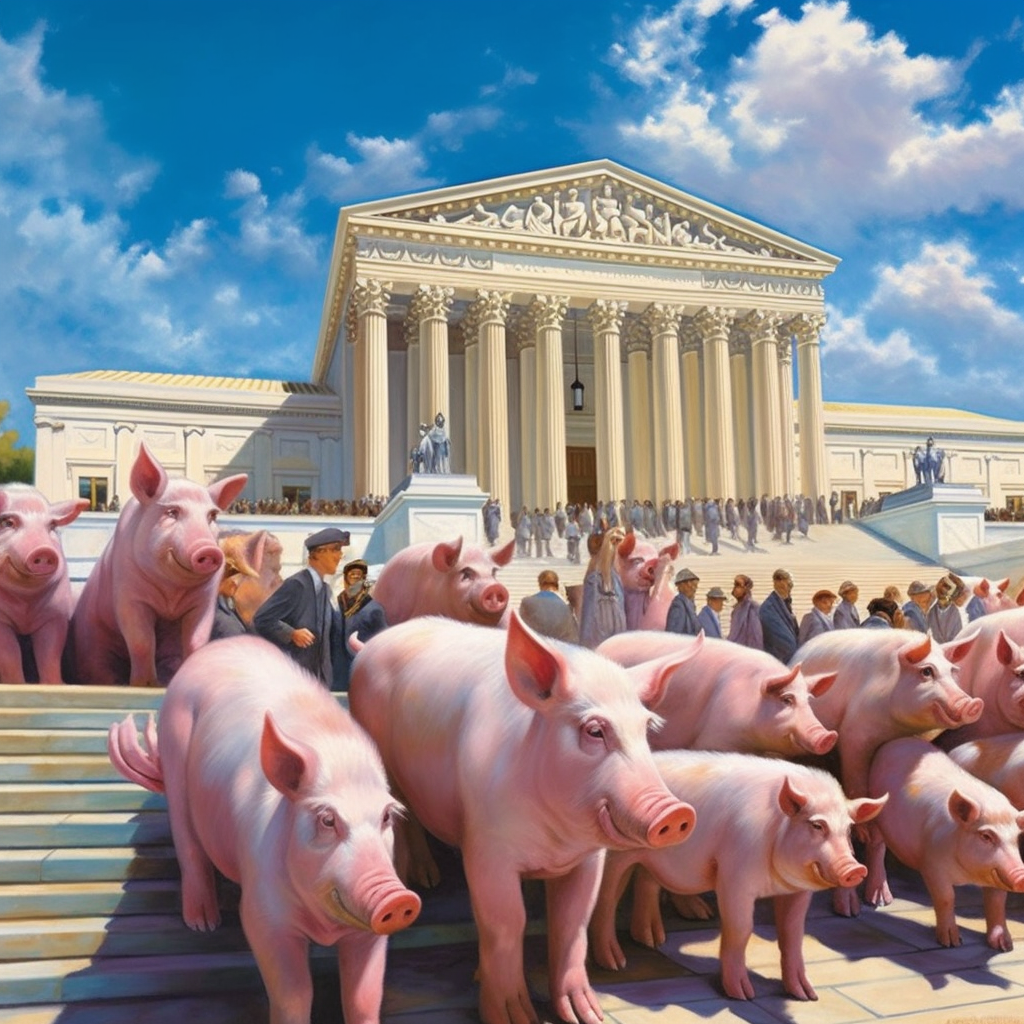[dc]W[/dc]e start this week on the exciting topic of the “Dormant Commerce Clause.” Article I, Section 8, Clause 3 of the Constitution gives Congress the power to “regulate Commerce with foreign Nations, and among the several states, and with the Indian Tribes.”
While people tend to naturally think that the Federal government can override state regulations and make them do whatever Congress desires, it can only do so when controlling “interstate commerce” or commercial transaction that crosses state lines. Congress can also require states to abide by the Bill of Rights via the Fourteenth Amendment, but that’s another issue.
The Dormant Commerce Clause, or Negative Commerce Clause, is a legal doctrine that applies the principles of the Commerce Clause to prevent states (at the state level) from enforcing laws that impede commerce in other states.
So now let’s talk about pork – not the “debt ceiling pork” that’s being debated now in Congress, but actual pigs. In 2018, California voters, in an act of compassion for animals, passed a ballot initiative (Proposition 12) that made it illegal to sell pork meat in the state that comes from farms where pigs are “confined in a cruel manner.” This was defined as conditions where pigs are prevented from “lying down, standing up, fully extending limbs, or turning around freely.”
The National Pork Producers Council and the American Farm Bureau Federation sued, claiming Proposition 12 violated the “dormant Commerce Clause” by raising the costs borne by out-of-state farmers since California already imports most of the pork used in the state.
On May 11, 2023, the Supreme Court ruled that Proposition 12 is legitimate and does not violate the Commerce Clause. Justice Gorsuch, who wrote the majority opinion, noted that the dormant Commerce Clause principle was typically used to prevent states from trying to gain an economic advantage over others. Still, California is not attempting to gain an advantage in this case since it does not produce much pork. The reason voters passed Proposition 12 had nothing to do with commerce and more to do with preventing cruelty to animals. Further, states have often banned items made in other states that they deem dangerous or violate “public morals.”
While this may seem to be an arcane issue best left to legal boffins, Justice Kavanaugh in his dissent that because California does not produce much pork, it represents a huge market for pork products and its voters passed a law intended to regulate what occurred in other states where farmers “have little choice but to comply with California’s regulatory dictates.” It isn’t about the safety of the final product itself, but about the morality of the behaviors associated with creating the product.
Kavanaugh ominously warns, “future state laws of this kind might not be confined to the pork industry.” He cites as an example, “what if a state laws prohibits the sale of fruit picked by noncitizens who are unlawfully in the country?” Or prohibits sale of goods made by people earning less than $20 an hour? Or “what if a state law prohibits ‘the retail sale of goods from producers that do not pay for employees’ birth control or abortions’ (or alternatively, that do pay for employees’ birth control or abortions)?”
Kavanaugh states, “California’s law thus may foreshadow a new era where States shutter their markets to goods produced in a way that offends their moral or policy preferences – and in doing so, effectively force other States to regulate in accordance with those idiosyncratic state demands.”
This decision may empower the legislatures of large consumer states to pass laws that force businesses in other states to comply with their social policies or face economic ruin.
Case: National Pork Producers Council et al v. Ross, 598 U.S. ____ (2023), decided 5/11/2023. https://www.supremecourt.gov/opinions/22pdf/21-468_5if6.pdf
